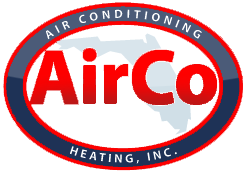In Palm Beach County, where hot temperatures and high humidity dominate most of the year, having a properly functioning air conditioning system is essential. However, like any mechanical system, your AC can develop issues that can compromise its performance. Knowing how to troubleshoot these problems can save you time, money, and discomfort while waiting for professional help. Here’s a guide to troubleshooting common AC issues in Palm Beach County, and tips on how to fix or prevent them.
- AC Won’t Turn On
One of the most frustrating problems is when your AC refuses to turn on, especially on a sweltering day in Jupiter. While this issue may seem alarming, it’s often caused by something simple.
Troubleshooting Steps:
- Check the thermostat: Ensure your thermostat is set to “cool” and the temperature is set lower than the current room temperature. Also, check the batteries if it’s a battery-operated unit.
- Inspect the circuit breaker: Your AC might not be receiving power if the breaker has tripped. Check your home’s electrical panel and reset the breaker if needed.
- Check the AC power switch: Many AC units have a power switch near the indoor unit. Ensure it hasn’t been accidentally switched off.
- Look for a blown fuse: If your AC still won’t turn on after resetting the breaker, the problem could be a blown fuse. Replacing the fuse may solve the issue.
When to Call a Pro:
- If none of these troubleshooting steps work, you might have a more serious electrical problem, such as a faulty contactor or capacitor, which requires professional attention.
- AC Blowing Warm Air
If your air conditioner is running but blowing warm or lukewarm air, it can quickly make your home uncomfortable, especially in the Florida heat.
Troubleshooting Steps:
- Check the thermostat settings: Ensure the thermostat is set to “cool” mode and verify that the temperature setting is lower than the current room temperature.
- Inspect the air filter: A clogged air filter can restrict airflow, causing the system to overheat and blow warm air. If the filter is dirty, replace it with a new one.
- Check the outdoor unit: Your outdoor unit may be obstructed by leaves, dirt, or debris, preventing it from cooling the air properly. Clean around the unit and clear any blockages.
- Look for frozen coils: Frozen evaporator coils can prevent your AC from cooling properly. Turn off the system and let the coils thaw before turning it back on. Cleaning or replacing the air filter and ensuring adequate airflow can prevent frozen coils.
When to Call a Pro:
- If your AC continues to blow warm air, it may have a refrigerant leak or compressor issue, both of which require professional repair.
- Weak Airflow from Vents
If you notice that the airflow from your vents is weak, your AC may struggle to cool your home effectively. This issue could be due to several factors.
Troubleshooting Steps:
- Check the air filter: A clogged air filter can significantly reduce airflow. Replace it if it’s dirty.
- Inspect the ductwork: Leaks or blockages in your ductwork can prevent cool air from reaching certain rooms. Check for visible damage or call a professional to inspect for hidden leaks.
- Open all vents: Ensure that all vents are open and unobstructed by furniture, curtains, or other objects that might block airflow.
- Examine the blower motor: If the blower motor is failing, it may not be pushing enough air through the ducts. Listen for unusual noises from the indoor unit, as they could indicate a motor problem.
When to Call a Pro:
- If the airflow remains weak after checking the filter and vents, it could be due to a more serious issue like a malfunctioning blower motor or ductwork problems, which need professional repair.
- Water Leaks Around the AC Unit
Water pooling around your AC unit is a common problem in humid climates like Jupiter, especially when the system is working overtime during the summer. Leaks are often caused by condensation that isn’t properly draining from the unit.
Troubleshooting Steps:
- Check the condensate drain line: The drain line can become clogged with dirt, algae, or debris, causing water to back up and leak around the unit. Try flushing the line with a mixture of water and vinegar to clear any blockages.
- Inspect the drain pan: The drain pan collects water before it flows out through the drain line. If it’s cracked or rusted, water can leak from the system. Replace the drain pan if necessary.
- Ensure the unit is level: If the outdoor unit isn’t level, water may not drain properly. Use a level to check the unit and adjust if needed.
When to Call a Pro:
- If the drain line is clear and the unit is level, but the leak persists, there may be a deeper issue such as a refrigerant leak, which requires professional assistance.
- AC Making Strange Noises
Unusual noises coming from your air conditioning system are often an indication that something is wrong. Each type of noise can point to a different problem.
Common Noises and Their Causes:
- Banging or clanking: This could indicate a loose or broken part inside the compressor or blower. Turn off the system to prevent further damage.
- Squealing: Squealing sounds may be caused by a worn belt or a failing blower motor.
- Rattling: Rattling can be due to loose screws, debris in the system, or an unbalanced fan.
- Buzzing: A buzzing sound often points to electrical issues, such as faulty wiring or a failing capacitor.
When to Call a Pro:
- Most strange noises indicate mechanical or electrical problems that require professional repair. If your AC is making any of these sounds, it’s best to turn it off and call a technician.
- High Energy Bills
If you’ve noticed a sudden spike in your energy bills, it could be due to your AC system running inefficiently. There are several reasons why your system may be using more energy than normal.
Troubleshooting Steps:
- Replace the air filter: A dirty air filter forces your AC to work harder, increasing energy consumption. Replace the filter regularly to maintain efficiency.
- Check for refrigerant leaks: Low refrigerant levels cause the system to run longer to achieve the desired temperature, leading to higher bills. A professional technician can detect and fix any refrigerant leaks.
- Seal air leaks: Check windows and doors for air leaks that could be allowing cool air to escape. Sealing these gaps can reduce the load on your AC system and lower energy bills.
- Upgrade your thermostat: A programmable or smart thermostat can help optimize your cooling schedule, reducing unnecessary usage and lowering costs.
When to Call a Pro:
- If you’ve taken these steps and your energy bills are still high, your AC may need a tune-up or a more thorough inspection to identify hidden inefficiencies.
Living in Palm Beach County, means relying heavily on your air conditioning system to stay cool and comfortable. By knowing how to troubleshoot common AC issues—such as an unresponsive unit, warm air, weak airflow, or strange noises—you can address problems early and avoid costly repairs or system breakdowns.
While some issues can be easily fixed with basic maintenance, others may require professional attention. If you’re ever in doubt or if DIY troubleshooting doesn’t resolve the problem, don’t hesitate to call a licensed HVAC technician to diagnose and repair your system. With proper care, your AC will continue to run efficiently, keeping your home cool even in the hottest Florida weather.


